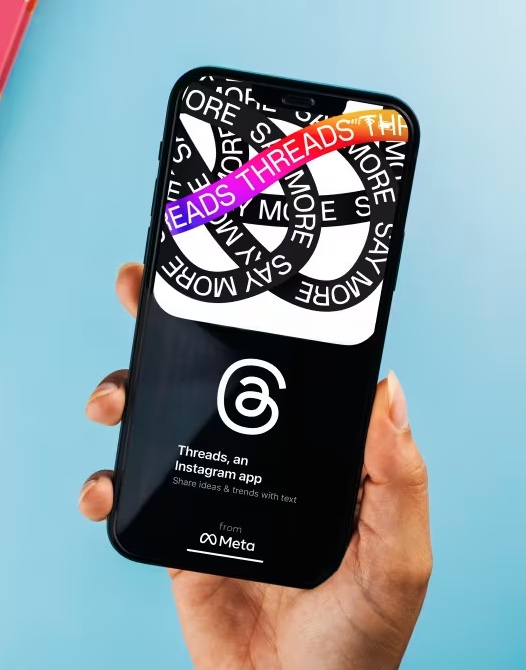What was there before the wheel, like the wheel? Nothing. And before the iPhone, similar to the iPhone? Very little. Was there anything similar to Threads before Threads? Yes, Twitter. This simple philological equation alone would be enough to close the discussion. Meta’s new social is what we didn’t need. The question many have asked me is disarmingly simple: “Did we need it?” That was the reaction of many to the news that Mark Zuckerberg has decided to throw down the gauntlet with Threads to Elon Musk, Twitter’s new owner. One could discuss the clash of two of the world’s most “unwieldy” egos at length, but answering the question is more useful and interesting.
At the time of its launch last July, the social reached one hundred million members in record time, even burning ChatGPT. Still, since then, growth and interest have waned, partly because Threads was launched in a hurry to take advantage of yet another Twitter crisis. And, like any Twitter clone, indeed X clone, Threads is a place haunted by the spectre of the social network it would like to replace (and its new master, Elon Musk).
We didn’t need it
But what’s the point? Adam Mosseri, head of Instagram and Mark Zuckerberg’s agreeable avatar, has repeatedly said he wants to keep Threads away from news, away from politics. The reasons are obvious: No one – inside or outside Meta – wants to replicate the post-2016 years when Facebook became synonymous with fake news and political radicalization. It remains to be seen, however, what use is a Twitter-like product if not for talking about what’s going on, sharing memes, and debunking the tweet of the day: in short, all those behaviours that have made Twitter a toxic but also important site. Influential. Funny, at times.
Mosseri recently said that Threads will not “recommend journalistic content to those who don’t want any,” he wants to pursue another, more serene and less confrontational way of social networking: “An open and friendly space for public conversations, especially concerning content creators.” The war in Gaza has offered Threads another opportunity to establish itself as an alternative to the many hoaxes circulating on X but to succeed; it must take an uncomfortable path, that of content moderation, a concept now taboos in Silicon Valley.
Between the increasingly extremist chaos of X and a polite, moderated virtual space, Threads has chosen not to choose, pulling straight and hoping for the specific weight of Instagram to gain users. Will it work? According to some estimates, Threads had about 23 million active users at the end of 2023, compared to X’s 56 million, confirming the social network’s poor ability to retain newly arrived users.

Far away island
Numbers aside, Meta also seems to want to invest in Threads to establish itself in the so-called “fediverse,” the federation of decentralized socials of which Mastodon and Bluesky are also members and which it believes is crucial for the future. In particular, Zuckerberg has shown interest in ActivityPub, a new web standard that aims to make all these socials accessible to each other, giving more power to the individual user. In the hours before Threads landed in the EU, Meta was experimenting with just that, opening a scenario in which a post on Threads could be accessed from Mastodon, for example. Perhaps a step toward a better network model, but one that will not be enough to make Threads interesting.
The question is whether Threads is able to be more than a duplicate of the old Twitter and turn into a place where people want to spend their time actively. Is it enough to appear as a more likeable Twitter if your audience is smaller anyway? Will people get tired of seeing their feed co-opted by nice people? Perhaps Threads will dethrone Twitter; maybe Zuckerberg will literally deliver the knockout blow to Elon Musk’s ambitions. Or, we can dream that none of this will happen, and we may finally realize a decentralized social network run by pure-minded moderators present for us in the ether. Or, even the whole idea of Twitter and this kind of social media is now moribund: too corrupted by malign influences, scam artists and rogue operators to ever get back the feel of the past.



